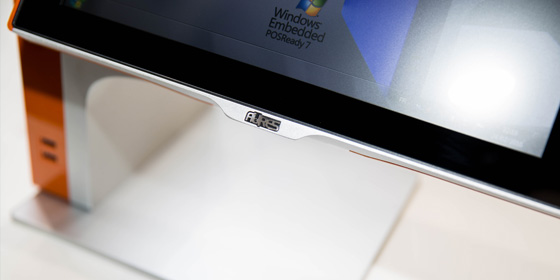by Paul HUDSON – Business Development Manager
In industries like retail and hospitality, it is easier said than done to be aware of the smallest possible detail because of all the different variables involved. Behind the basics of having stock on shelves that people want to buy at a price they believe represents good value, there is a whole range of operational factors to take into account.
Success requires having your finger on the pulse in terms of responding to rapidly changing consumer demands, whether it is by season or just down to changing tastes. It requires the logistical agility to ensure the most in-demand products at any one time are always available, which in turn needs careful management of the supply chain. It requires precise monitoring of price points and margins, savvy marketing and, increasingly, the ability to operate across multiple channels at once. And even this is all a gross simplification.
Clear insight
With so many balls in the air for retailers to juggle, it is no wonder that Business Intelligence (BI) is attracting a lot of interest. When the timing of when you reorder items, how many units you bring in and where you focus your discounting and promotions can have a huge impact on tight margins, retailers have every reason to want to base their decisions on clear data and cold, hard facts. If it offers one thing, BI promises to remove the guesswork from business planning.
BI as a discipline has emerged from the evolution of data analytics. Businesses have long used historical reporting as a basis for evaluating performance, identifying trends and making next steps. But as analytics solutions have become more and more sophisticated, they have become capable of drawing in data from disparate processes to provide a ‘whole picture’ overview of operations.
Moreover, they have been able to combine historical, real-time and predictive analysis into one, and despite going into ever deeper granular detail with increasingly complex data sets, the focus on data discovery and visualisation has made the data easier to understand and use than ever before. In a nutshell, Business Intelligence provides clear factual insight for informed decision making.
Synergies with EPOS
All of this is achieved through powerful software platforms that can be integrated into existing business systems to mine and process all the relevant data. And here retailers have a significant advantage when it comes to adopting BI. By now most already run a system that is ideal for sourcing the majority of the data they need for making smart, intelligence-led decisions – EPOS.
We are starting to see more and more EPOS software developers integrate BI solutions because they add considerable value to processes that EPOS already undertakes. Every sale generates a wealth of data which can be put to use – the time, date and location of sales, the details of the products bought, any discounts or loyalty schemes taken advantage of, the colleague who completed the transaction. When permission is forthcoming, this can be linked to consumer information such as their age, gender and other demographic details, their previous purchasing history, whether they are a new or returning customer and so on.
Up until relatively recently, retailers could be satisfied that electronic sales processing greatly reduced the burden of manual stock checks, automatically updating stock lists at every transaction and making inventory management considerably more agile and efficient. But now so much more is possible.
Business Intelligence in retail or hospitality is the ability, at a click of a button or the swipe of a screen, to compare sales trends for individual SKUs across time and location, getting clear information about which lines sell better where and at what time of year. It is the power of knowing, based on previous sales trends, the statistical probability of a planned promotion securing the returns sought. It is the glue that links sales, CRM and marketing, not to mention all other business functions, allowing decisions to be taken with clarity on what will resonate best with your customers.
And while the data capturing capabilities of EPOS software provide a perfect foil for BI, retailers can also use their EPOS hardware to their advantage. With their touchscreen interfaces, modern EPOS terminals are well suited for helping to make data accessible and intelligible in real time.
Just as call centre agents have long had the benefit of data dashboards to help monitor performance, staff within head office or in-store, are now able to access invaluable insights with a simple swipe as they help a customer. Perhaps it’s to look at product recommendations for cross-selling, looking up the most commonly bought items with a particular SKU; perhaps it is to check anticipated footfall to make decisions on staffing if a member of the team is taken ill unexpectedly. With touchscreens available throughout a store, or even on the move in the form of mobile PoS, all of this can be looked up as and when required.
In short, BI is offering retailers the ability to understand their business in greater depth, with greater clarity and with greater agility than ever before. In such a fast-paced and competitive sector that is undergoing significant shifts away from traditional norms, this provides invaluable reassurance and the opportunity to take back control in decision making. In EPOS systems, BI has a crucial partner – an important touchpoint for collecting large volumes of relevant data and a means of accessing the insights right on the front line of operations.




